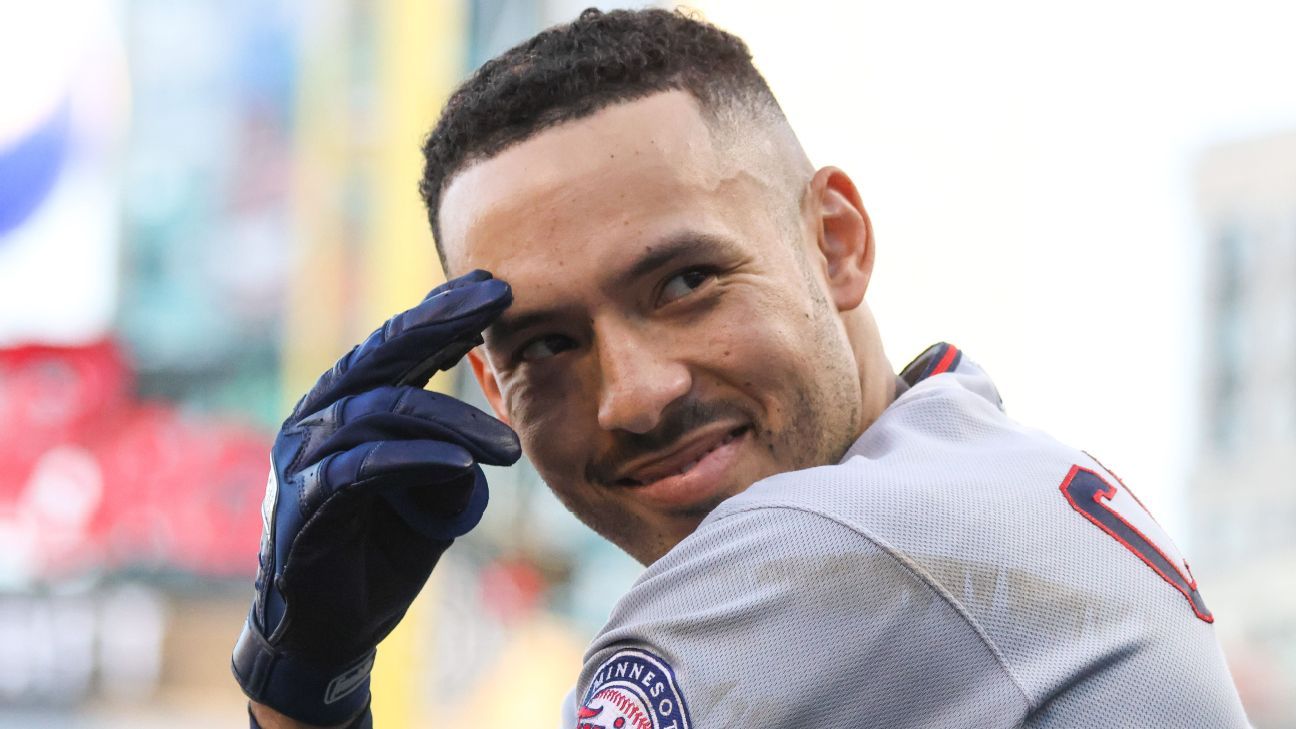A canceled news conference, late-night negotiations and a hotel room tackle: Inside the stunning events that made Carlos Correa a Met

Jeff PassanESPN
THE ITINERARY WAS set. On Sunday night, Carlos Correa, his wife, son, parents, siblings and in-laws would descend on San Francisco and check in to their rooms on the 12th floor of the St. Regis hotel. On Monday, Correa would undergo a physical examination by the San Francisco Giants, the final step to make official the $350 million deal they’d agreed to six days earlier. On Tuesday, the entire family would attend Correa’s introductory news conference, followed by a cable-car tour of the city and media blitzkrieg. It was perfect, a three-day introduction for a contract set to last 13 years.
And then it all fell apart.
On Monday night, Correa’s agent, Scott Boras, also posted up on the 12th floor, received a call from Giants president of baseball operations Farhan Zaidi expressing trepidation over results from the standard medical analysis of Correa. Their concerns were with Correa’s lower right leg, which had been surgically repaired in 2014 after he broke his fibula on a slide during a minor league game. It was an injury Correa hadn’t thought about in years, and suddenly it was putting in jeopardy the fourth-largest guaranteed contract in North American sports history.
The team asked Boras for more time to consider whether to honor or walk away from the agreement. The Giants postponed Tuesday morning’s news conference, the first sign to the world that something was amiss. Correa sat, waited and tried to stay calm, even as his family struggled to.
Finally, about 1 p.m. PT, the parties reengaged on the phone. Boras asked team officials whether they intended to proceed with the 13-year contract. The Giants said they did not — at least not at its current length and value. Perhaps they could work out a new deal.
What came next staggered the sports world and set off a chain of events certain to reverberate through the game for years to come. The story of how Correa lost his megadeal with the Giants and about 10 hours later agreed to another with the New York Mets was pieced together by ESPN through interviews with people involved in the negotiations as well as those with knowledge of the situation.
It is a tale of how a team eager to sign a star this winter wound up empty-handed and another replete with big names wound up with one more. It is a case study of how a team like the Giants, whose meticulousness defines their roster-building, contrasts with the Mets, whose owner is remaking the sport in real time with truckfuls of cash. And it is a peek inside a hotel room in San Francisco, where excitement devolved into devastation before culminating in joy.